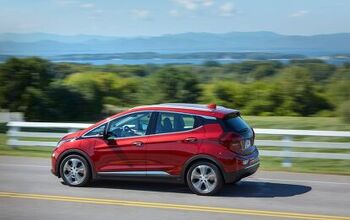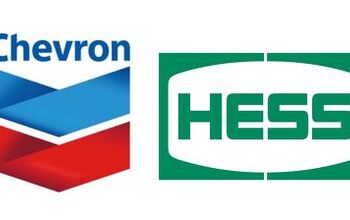General Motors, Tesla Spar Over Electric Car Sales

At a one-day workshop Tuesday sponsored by the Federal Trade Commission to discuss the future of automobile dealers in the U.S., executives from General Motors and Tesla jabbed at each other over electric car sales.
GM CEO and Chairwoman Mary Barra touted the new Chevrolet Bolt as being one of the few all-electric cars that could be purchased in all states.
Later, at a direct-sale discussion, a lawyer for Tesla chided Barra by saying that it was GM’s persistence in shaping dealer law nearly a century ago that has forced Tesla out of six states including Michigan and Texas.
“Because they voluntarily chose generations ago to use a certain business model, (GM thinks) everyone that comes after should be required as a matter of law to use the same model,” Tesla lawyer Todd Maron said Tuesday.
The FTC held a daylong workshop on the future of automotive distribution in Washington D.C. to discuss direct sales and how future autonomous cars could be sold. Elio Motors’ Vice President of Government Affairs Joel Sheltrown said a compromise could be found between old automakers and new automakers by allowing new automakers to circumvent franchise dealer agreements and sell cars to consumers.
“Let the customers decide what they want,” Sheltrown said. If automakers such as Elio can’t survive because consumers won’t pay for cars without intra-brand competition, the market will decide that for itself, he added.
Professor of economics at Yale University, Fiona Scott Morton, said that abolishing the current franchise dealer system would prevent “double marginalization” from the manufacturer and retailer to both add profit to new cars, and would ultimately benefit consumers.
National Automobile Dealers Association President Peter Welch disagreed with Morton and told workshop attendees that the average consumer spends 13.5 hours cross-shopping cars between dealers to find the best deal, according to his association’s data. Internet shopping has transformed carbuying, he said, but not to favor manufacturers; dealers are more transparent when it comes to prices than manufacturers would ever need to be.
“To say dealers don’t use the Internet is wrong. I don’t know of any other industry that’s embraced (the Internet) like auto dealers,” he said.

More by Aaron Cole
Latest Car Reviews
Read moreLatest Product Reviews
Read moreRecent Comments
- Varezhka Maybe the volume was not big enough to really matter anyways, but losing a “passenger car” for a mostly “light truck” line-up should help Subaru with their CAFE numbers too.
- Varezhka For this category my car of choice would be the CX-50. But between the two cars listed I’d select the RAV4 over CR-V. I’ve always preferred NA over small turbos and for hybrids THS’ longer history shows in its refinement.
- AZFelix I would suggest a variation on the 'fcuk, marry, kill' game using 'track, buy, lease' with three similar automotive selections.
- Formula m For the gas versions I like the Honda CRV. Haven’t driven the hybrids yet.
- SCE to AUX All that lift makes for an easy rollover of your $70k truck.

































Comments
Join the conversation
General aviation aircraft are often sold directly by manufacturers to customers without a dealer. I wonder if Ms. Barra thinks that Textron should be legally required to use independent dealers in order to sell Cessnas in MI? Won't someone please think of the poor airplane buyers?
Tesla's problem with certain states has everything to do with the political power of dealerships in those states and almost nothing to do with GM's strategic decision 100 years ago to use the franchised dealer model. If, and it is a big if, Tesla ever grows to be a major supplier of automobiles they may also find that their direct sales model becomes a problem for them. Selling to early adopters isn't the same as being a mass market player. Handling trade ins and service is going to be a real scaling challenge for Tesla.